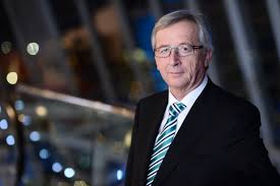Cooperation, Direct Speech, EU Regional Policy, EU – CIS, Ukraine
International Internet Magazine. Baltic States news & analytics
Friday, 23.01.2026, 16:29
Standing by Ukraine
 Print version
Print version |
|---|
I am under no illusions about the
challenges facing the government in Kiev or the ordinary citizens around the
country. The road to reform and stability is a long and difficult one. But the
scale and speed of the change in Ukraine in the last three years eclipses the
last 20 years put together.
President Poroshenko’s reform and anti-corruption agenda are putting the country back on a more stable footing and it is our duty and responsibility to help Ukraine build on that. That is why I made a clear promise in Kiev 18 months ago: If Ukraine keeps reforming, the EU will keep supporting. That was a message I repeated last month at the 18th EU-Ukraine Summit in Brussels.
And Ukraine’s reforms are making a
real difference. The endemic corruption that has
drained the economy for decades is
now being tackled head on. The independence and integrity of new public
institutions such as the National Anti-Corruption Bureau, the Anti-Corruption
Prosecution Office and the Asset Recovery Office are vital steps in the right
direction. Winning this fight is vital both for the government’s legitimacy at
home and its credibility with the international community.
That is why the EU must – and will – keep supporting. We have already committed €7 billion to support the government’s reform agenda, with a further €5 billion to come before 2020. And we are hopeful that the next €600m tranche of Macro Financial Assistance will be unlocked in early 2017 after Ukraine agreed to meet the remaining reform criteria.This is an investment in the country’s transition, and an investment in our continent’s stability.
But it is not just about financial support – it is about widening our cooperation, strengthening our economic and social ties and showing our solidarity to the people of Ukraine.
That is why at the start of the year, our 28 Member States backed the provisional entry into force of the Deep and Comprehensive Free-Trade Area. This is not only about cutting tariffs; Ukraine will now align with EU norms and standards in areas such as competition, public procurement, intellectual property rights and trade in energy. As a result, more than half a billion EU and Ukrainian citizens now enjoy new opportunities for business and trade. And we are already seeing the green shoots of a recovery - the Ukrainian economy is now growing again, and exports to the EU have increased by about 5% over the last year.
I have been working closely with
European Council President Donald Tusk to ensure that the EU fulfils its
geopolitical responsibility to conclude the Association Agreement.
We also share an interest in making it easier for our citizens to visit each other’s countries. It is the best way to encourage trade and cooperation but also to deepen the bond between our people. But rights come with responsibilities, and in 2010 the Commission laid down all the reforms that Ukraine would need to deliver to obtain visa-free travel for its citizens. After a thorough and lengthy assessment, we concluded earlier this year that those conditions had been met. We must now keep our side of the bargain. I believe that Ukrainian citizens will be free from the visa obligation in a matter of weeks.
But of course, for as long as the conflict in the east of the country remains unresolved, stability will always be a relative term for Ukraine. We will only solve that conflict through diplomatic means and by ensuring full respect of Ukraine’s sovereignty and territorial integrity. That is why the EU insists on full implementation of the Minsk agreements, starting with a full and proper ceasefire.
Looking forward, Ukraine’s political leaders now have a responsibility to work together in the national interest to keep up the reforming momentum that has achieved so much in so little time. On our side we will continue to do everything we can to support this great European nation get back to its feet. Three years ago we embarked together on a new and hopeful path and today the EU stands just as firmly behind the people of Ukraine as we did then.








 «The Baltic Course» Is Sold and Stays in Business!
«The Baltic Course» Is Sold and Stays in Business!

